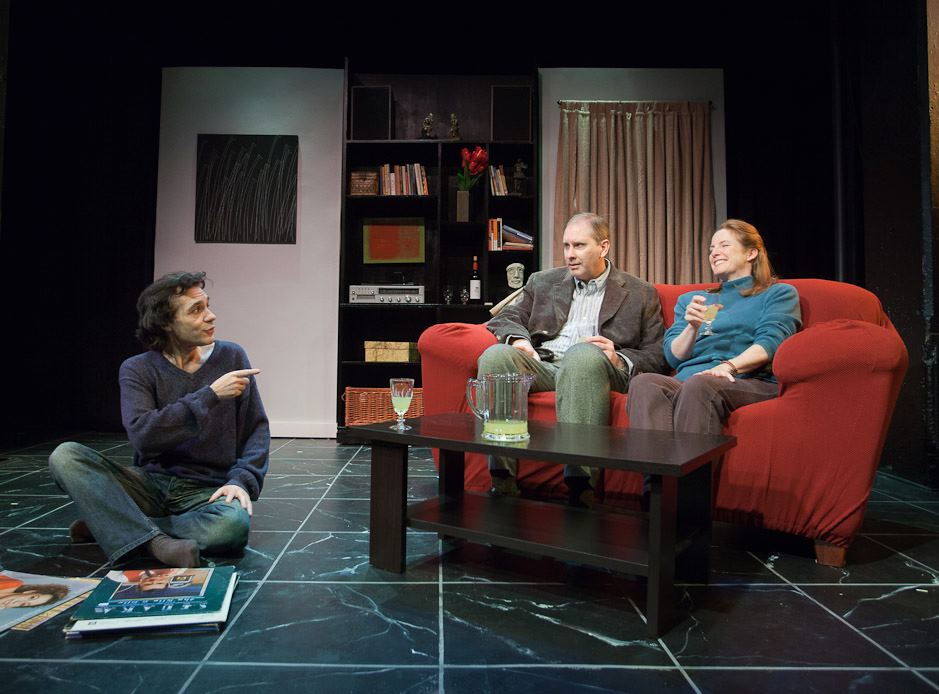The Real Thing by Tom Stoppard, Salem Theatre Company, 1/28/12-2/18/12, http://salemtheatre.com/on_stage.htm.
Reviewed by Gillian Daniels
(Salem, MA) Much ink has been devoted to the subject of infidelity and romantic betrayal. Whether in songs, books, or plays, it’s a well-worn trope. Tom Stoppard recognizes this early on in The Real Thing, establishes that it’s a literary convention in the first scene, and spends the rest of the play dissecting what it really means to the characters.
Joseph O’Meara is extraordinary in his debut with the Salem Theatre Company. He does an excellent job as Henry, a clever, popular, but sometimes cruel playwright in 1982 who initially holds a coldly superior outlook on the world. After a first scene that sets up a red herring protagonist, Henry is revealed to be the true main character, a man eventually pushed out of his safe, intellectual bubble when forced to admit to his all-too human emotions.
His relationships with the female cast are complex, at first treating each woman character with an air of dismissal that gives way to genuine affection. Surprising turns include his relationship with Charlotte (Jennifer Parkos) and their daughter, Debbie, played as a clever upstart by newcomer Audrey Claire Johnson, who’s convinced that fidelity is another version of colonization.
Leading lady Annie (STC veteran Sarah Carlin) is charming, but can be difficult to sympathize with. She has a magnetic effect on the other characters but it isn’t always obvious why.
A play like The Real Thing works with a lot of elements I don’t enjoy in a story, from cheating spouses to a main character who’s a writer (“writing about writing” is a trope I really would like to see retired).
This, however, is Tom Stoppard, a master of wordplay, humor, and meta-commentary.
In the hands of the writer who skillfully crafts theatre like Rosencrantz and Guildenstern Are Dead, what could have been a depressing drag of a story becomes lively, funny, and bravely sentimental. Stoppard does the impossible and says something new using tropes and character types–cuckolded husbands and emotionally cornered wives–that are centuries old. The truths we reach with Henry are warm and ultimately kind, accepting of human nature in all its prickliness and surprising grace.
Salem Theatre Company does the material justice. Accents sometimes slip (the settings are London and Glasgow) but the staging and actors are top-notch.
Audiences that have a low tolerance for infidelity stories will be understandably hesitant. Viewers share in the emotional turmoil of the characters, but it’s handled so beautifully, most won’t mind.

